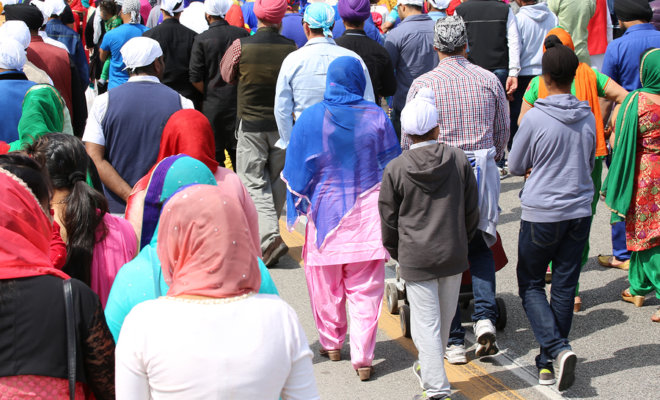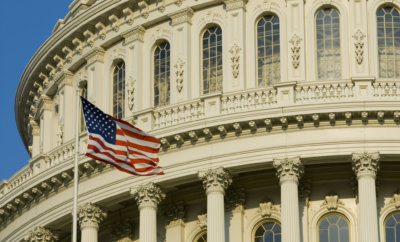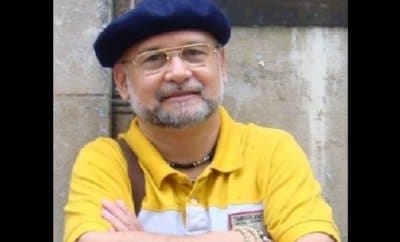NRI
Blacklist of Overseas Sikhs Almost Done Away With, Says BJP Leader

Representational Image
Photo: Bigstock
BJP general secretary Ram Madhav addressed a congregation of Sikhs at a gurdwara in Maryland, and said that the blacklist has caused much discontent among the diaspora.
The National Democratic Alliance (NDA) government has almost done away with the “blacklist” of overseas Sikhs, Bharatiya Janata Party (BJP) leader Ram Madhav said while addressing members of the community in Washington over the weekend, PTI reported.
“We have almost done away with the most inhuman black list, which used to deny the community their right to visit India, the right to visit Harmandir sahib, right to meet with their relatives, near and dear ones,” BJP general secretary Ram Madhav said at one of the oldest gurdwaras in Maryland, where the congregation gathered, according to the report.
“The (black) list has been almost completely removed. Only a few individuals remain (on the list). Those names will also go,” Madhav added.
“I stand before you to assure the community that we will do our best to render justice to each and every family that has suffered during those unfortunate years,” he said to the Sikh Americans who had gathered to celebrate Baisakhi that was organized by the Sikhs of America Foundation, ANI reported. “We are proud of the achievements of the Sikh community in North America, which has contributed significantly to the growth and prosperity in its adopted home. It is commendable that the community has also preserved its traditions and ethos, and is a living bridge with India,” he added.
Sh @rammadhavbjp ji addressing the Sikhs of America- Annual Baisakhi Gala in Washington DC. Amb @NavtejSarna pic.twitter.com/85tvMXRNR5
— India in USA (@IndianEmbassyUS) May 20, 2018
The government has approached the Supreme Court to cancel the anticipatory bails of those who allegedly led the 1984 anti-Sikh riots, which resulted in deaths of over 3,000 people, so that they can be put behind the bars, according to Madhav.
The Sikhs who were blacklisted for their alleged ties to the Khalistan movement in the ’80s and ’90s were denied Indian visa. The blacklist was prepared at different levels by the security agencies. The names on the list were cited as one of the major reasons for discontent among the Sikh community in the United States.
Several gurdwaras in the United States had said earlier this year that they would not let any Indian government official address their gathering. Though the announcement was denied by many gurdwaras, many others in Canada and the United Kingdom followed suit. The Sikh Federation United Kingdom said on Jan. 5, 2018 that members of the Indian Sikh diaspora are troubled with Indian government officials and “their agents” for “increasingly interfering in our institutions and Sikh affairs, undermining of Sikh campaigns for greater rights and internal matters for the Sikh community.”
In November last year, Indian High Commissioner to Australia, Ajay Gondane, was prevented from entering the Tarneit Gurudwara Sahib in Melbourne by a group of protesters over alleged torture of British Sikh national Jagtar Singh Johal by the police in India.
Taking up the issue of Khalistan sympathizers raising voice in Canada, India had earlier this month asked the Justin Trudeau-led government to ensure that freedom of expression is not misused to incite violence, and glorify as “martyrs” individuals who are considered “terrorists” by the Indian government. India’s stance was reiterated by Virander Paul, the country’s deputy permanent representative to the United Nations, during the “Canada – Interactive Dialogue” at a session of the universal periodic review of the UN Human Rights Council in Geneva.
Trudeau’s visit to India in February this year was marred by controversies over the inclusion of former Khalistani militant Jaspal Atwal in the guest list of an official Canadian event in Mumbai. Jaspal Atwal, who was at the center of Canada’s diplomatic faux pas, was reportedly removed from the Indian security agencies’ blacklist a month before the incident.




You must be logged in to post a comment Login